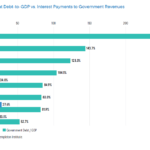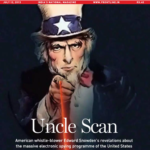The US used to be a free market economy where competition thrived and the law of supply and demand determine prices of goods and services. Unfortunately that is no longer the case. For the past few decades competition has become a dirty word in most industries and monpolies have formed to dominate entire industries. As a result, consumers suffer as the invisible hand of the free markets has been replaced by the pricing power of monopolies. The lobbying power of private capital and the general unwillingness of regulators to do their jobs effectively has led to this current situation. To put it another way it is as though the state has decided that free markets are no longer fashionable to follow. I have written about monopoly in many industries including railroads, media, ratings industry, airlines, cable tv, etc. before.
Even the labor market, which is the most basic of any meaningful free market, has become noncompetitive. For some workers the current labor market may feel like a modern day slavery or the serf system that was so popular in the olden days. According to one study, nearly one-third of workers have signed non-compete agreements that prevent them from joining a competitor. Any third-grade economist would agree that this is not a common feature in countries that follow free market economic principles.
With that brief intro on the topic of monopoly and its awesome benefits, I came across an article at The Guardian by Thomas Philippon, Max L Heine Professor of Finance at the Stern School of Business at New York University. He notes that monopolies cost American consumers about $300 per month according to his calculations. From the article:
When I landed in Boston in 1999, the United States was the land of free markets. Many goods and services were cheaper here than in Europe. Twenty years later, American free markets are becoming a myth. Internet service, cellphone plans, and plane tickets are now cheaper in Europe and Asia than in the US. In 2018, the average monthly cost of a broadband internet connection was $31 in France, $39 in the UK and $68 in the US. American households also spend twice as much on cellphone services as households in France or the UK.
This is a result of policy choices. In 1999, the US had free and competitive markets while European markets were dominated by oligopolies. The airline industry is a prime example. Over the past two decades a wave of mergers has turned the US airline industry into an oligopoly while Europe has opened its skies to competition, thanks in part to low-cost carriers such as Ryanair and EasyJet. US regulators allowed these mergers to happen without meaningful challenges. EU regulators, on the other hand, encouraged the entry of low-cost competitors by making sure they could get access to takeoff and landing slots.
There are many layers of irony in this historic reversal. One irony is that the free market ideas and business models that benefit European consumers today were inspired by US markets. Another irony is that some leftwing US politicians are now contemplating policies that most Europeans would find extreme. We do not think private health insurance companies should be abolished. We favor wealth taxes, but we do not think they are a cure for all ills.
The polarization of the political debate is partly the result of ignorance. The American left sees Europe as an El Dorado of free healthcare, free education and workers’ rights. The American right sees it as a socialistic nightmare with no growth and no innovation. They’re both wrong, and the result is misguided policies and time wasted tilting at windmills.
Source:Monopolies cost Americans $300 a month. We’re no longer the land of free markets, Thomas Philippon, The Guardian
The entire article is worth a read.



